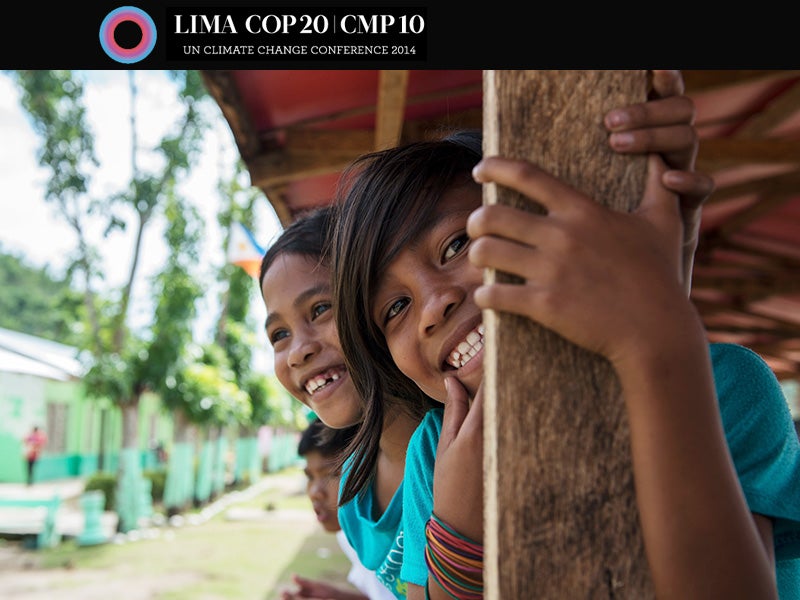Remembering the Human Element in Climate Change Agreements
Human rights must be considered when negotiating climate change agreements.

This page was published 11 years ago. Find the latest on Earthjustice’s work.
Just ahead of this year’s climate talks in Lima, French President François Hollande, speaking at a conference on the environment, drew an important link between human rights and climate change. Noting the adoption of the Universal Declaration of Human Rights in France, he called next year’s conference, which France will host, “a new step for human rights.”
In Hollande’s view, the signing of the climate agreement represents this new step because every person has the right to live in a world that’s not threatened by climate change. Recognizing the gravity of the harm and threats posed by insufficient action in the face of climate change, he proclaimed, “We have the duty to succeed.”
Yet for the past two weeks in Lima, countries from all over the world have been slow to make progress towards a new agreement, continuing to consider climate change in terms of targets, reductions, levels and methodologies. When focused on numbers and percentages only, it can be easy to lose sight of what we may well stand to lose if we don’t take sufficiently urgent and ambitious action: people. But these people—you, me, and particularly vulnerable communities like indigenous peoples in the Arctic and coastal communities in low-lying island nations—have rights under international law. Recognizing this, all 196 Parties to the climate conference vowed in 2010 to respect human right in all climate-related actions.
On International Human Rights Day last Wednesday, U.N. experts formally urged nations at the climate conference to take this statement one step further by including language in the 2015 climate agreement that provides that the parties shall, in all climate change-related actions, “respect, protect, promote and fulfill human rights for all.”
We need only look to the recent devastation in the Philippines to see the importance of expanding this language on human rights. There, for the third year in a row, a typhoon made landfall near the time of the U.N. climate change negotiations. These storms have destroyed people’s homes, led to food and water shortages, and compromised people’s access to other basic needs such as health care and sanitation services. International human rights law provides fundamental protections for people and clearly defines a country’s responsibility to ensure these protections. So when climate change affects people’s rights to property, food, water, health or means of subsistence, countries’ duties under international law to respect, protect and fulfill human rights ring loud and clear.
As countries develop their climate-related commitments for the coming years, it’s important that they recognize their human rights responsibilities. This means taking urgent, ambitious mitigation action now, such as reducing emissions of soot and short-lived climate forcers, which can achieve reductions in the near-term and buy us time as we endeavor to address carbon dioxide emissions. This also means recognizing the human side of climate change to protect our planet for present and future generations.
The International Program partners with organizations and communities around the world to establish, strengthen, and enforce national and international legal protections for the environment and public health.